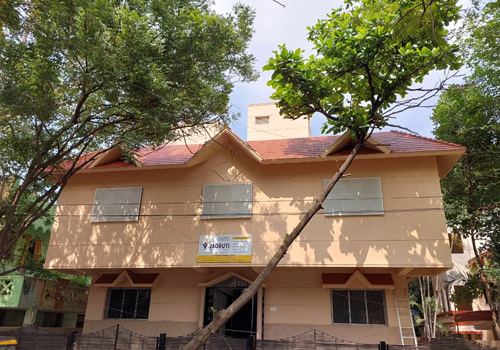What is Dementia

A broad term used to describe age-related cognitive deterioration in some people brought on by several variables, including the aging process, is dementia. The phrase is also used to describe a variety of symptoms, ranging from mild functional difficulty to cognitive impairment.
There is presently no known treatment for the majority of types of dementia forms, but some medications may temporarily lessen symptoms.
One of the illnesses in modern medicine that is frequently misunderstood is dementia. Some people refuse to have family members who exhibit memory loss evaluated because they believe that senility or senile dementia is an inevitable byproduct of age. Some people think that any indication of forgetfulness is a sign of dementia. These two conclusions are both false.
In addition, there are many questions about dementia. Is dementia distinct from Alzheimer’s disease, or are there several types and causes of dementia? Does Alzheimer’s disease develop in cases of memory loss brought on by other conditions? What can be anticipated from someone who has received a dementia diagnosis?
What are the signs and symptoms of dementia?
When neurons (nerve cells) in the brain that were formerly healthy stop functioning, lose their connections with other brain cells and eventually die, signs and symptoms of dementia appear. While everyone loses some neurons as they get older, dementia patients lose more neurons.
Depending on the type, there may be different signs and symptoms, such as:
- Memory loss, poor decision-making, and confusion
- Speaking, comprehending, and expressing one’s ideas, or having trouble reading and writing
- Wandering and becoming lost in a familiar area
- Difficulty responsibly managing finances and paying bills
- Repeated inquiries
- Using strange phrases to refer to everyday items
- It takes longer to finish routine everyday tasks
- Getting bored with routine daily tasks or occurrences
- Having hallucinations, delusions, or paranoia
- Impulsive behavior
- Disregard for the feelings of others
- Losing balance and problems with movement
As they age, people with intellectual and developmental disabilities can also develop dementia. In these situations, it can be extremely challenging to recognize their symptoms and make the diagnosis of dementia. It’s crucial to take into account a person’s present capacities and keep an eye out for changes over time that could indicate dementia.
What are the causes of dementia?
One factor that results in neuronal damage is the development of dementia. When brain cells are hurt, they are unable to communicate with one another, which causes malfunction.
Your brain’s deterioration leads to dementia. The nerve cells in your brain are harmed by dementia, which makes it impossible for your brain to interact with other parts of your body. Another cause of dementia is obstructed blood flow to the brain, which deprives it of oxygen and nutrients. Brain tissue perishes without nourishment and oxygen.
Depending on the part of your brain that is damaged, you may experience a variety of symptoms. Some forms of dementia are incurable and get worse with time. Other types of dementia are brought on by other illnesses that can have an impact on your brain.
After several examinations, such as a physical examination and a determination of the history of any issues, dementia is identified. Blood tests, imaging scans, and memory tests can rule out other conditions that might resemble dementia. Diagnosis of dementia is difficult to make.
Does there exist a spectrum of dementias?
Three categories of dementia exist :
- Primary (diseases and ailments in which dementia is the major illness) and secondary (diseases and conditions in which dementia is the main illness).
- Secondary (dementia owing to another disease or condition) (dementia due to another disease or condition).
- Symptoms of dementia are reversible and brought on by other conditions or factors.
What are dementia's seven stages?
Some medical professionals categorize the phases of dementia into mild, moderate, and severe categories. There is more than one method of staging dementia, though :
- Stage 1: There is no cognitive aging.
- Stage 2: Mild cognitive impairment in stage two.
- Stage 3: Moderate cognitive deterioration, such as dementia-related memory problems and a daily loss of objects.
- Stage 4: Moderately severe cognitive decline, including issues with basic math, short-term memory loss, and forgetting personal information. The longest stage of dementia is typically this one.
- Stage 5: Moderately severe cognitive deterioration, such as increased planning or organizational difficulties, disorientation, and the potential inability to live alone.
- Stage 6: Severe cognitive deterioration, including memory loss and difficulty identifying friends and relatives.
- Stage 7: Very serious cognitive deterioration in stage seven. This is dementia’s last stage. Communication is hindered, and bodily systems deteriorate.
Depending on the symptoms a patient is displaying, they may appear to be in two different stages at once.
Dementia treatment
In part, the treatment strategy is influenced by a patient’s type of dementia. To lessen the danger of further brain damage, vascular dementia patients should concentrate on controlling their blood pressure and cholesterol. Those who have dementia brought on by Parkinson’s disease, however, occasionally require medicine to control their condition.
To prevent misunderstandings and memory issues, it’s crucial to make sure that visual and hearing impairments are as fully addressed as possible during dementia treatment.
Which medications can be used to treat dementia?
Several medications for dementia are approved to treat Alzheimer’s disease, the most prevalent form of the condition. These include donepezil (Aricept®), rivastigmine (Exelon®), and galantamine (Razadyne®). Memantine (Namenda®), is an antagonist of the NMDA receptor.
Antibodies against amyloid (Aduhelm®).
These medications for dementia are used by medical professionals to treat patients with some of the different types of dementia. Different chemical processes in your brain are affected differently by cholinesterase inhibitors and NMDA receptor antagonists.
Care facilities and dementia
As dementia symptoms worsen over time, care for dementia patients will require more assistance and care. This can imply that relocating to a care facility might better serve their requirements.
This might be a difficult choice to make if you have been assisting a dementia sufferer to live independently or if you are a carer.
However, it’s crucial to keep in mind that relocating to a dementia care home in India might have a lot of advantages. These consist of:
- Social interactions with other residents and
- 24-hour support from care workers who know the resident with dementia is in a secure environment.
The list provides a consolidated list of dementia treatment and care centers in India.
- ARDSI (Alzheimer’s and Related Disorders Society of India).
- Jagruti Rehab
- Dignity Foundation.
- Helpage India.
- Dementia Day Care and respite care.
- Dementia Helpline.
How can you manage to provide care for a person who has dementia?
Having a solid support system is crucial for someone who is the primary carer for a dementia sufferer. Through dementia care in India, the caregiver is provided with brief respite, which is essential for the patient as well as the caretaker.
Determine when a patient is no longer able to perform some activities, such as driving. Getting the power of attorney status for financial and medical affairs is a difficult but necessary process. The local chapters of the Alzheimer’s Association can be very useful in accomplishing these responsibilities.
Frequently Asked Questions.
Our Centres.
Jagruti Dementia Care Centre is a leading provider of quality and compassionate care for individuals living with dementia in the community. Our centre provides a safe and secure environment where seniors can live out their days with dignity, respect, and purpose.
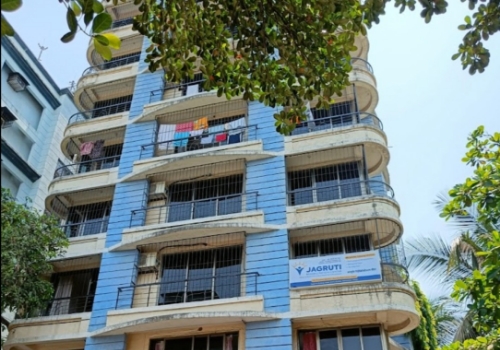
Malad
Sushmita Building, Ahead Fatima Devi School, Near Subway, Malad East, Mumbai, Maharashtra 400097

Pune
Farm, Zhagade Wasti, Near Loni Toll Naka, Solapur - Pune Highway, Manjri, Hadapsar, Pune, Maharashtra 412307
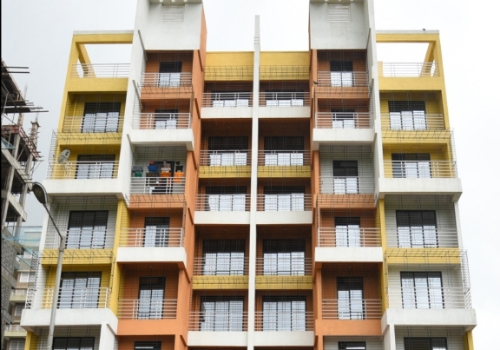
Navi Mumbai
Plot no 37, Sector 5, Siddhi Vinayak, Taloja Phase 1, Petali, Navi Mumbai, Maharashtra 410208
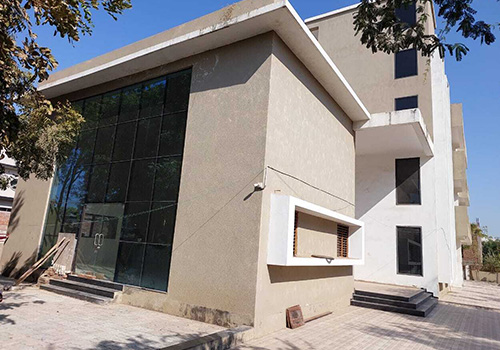
Navi Mumbai
B 24, Greenwood, Gardencity Vibhag 1 S.P Ring Road, OGNAJ Ahmedabad, Gujrat,- 380060
What People Say.
I can say this is the best psychiatric hospital in Noida where Dr Ashima, Dr Minny Jain and Dr Amar Shinde, one of the best psychiatrist, gives the treatment here. Patients ‘FIRST’ is the the priority of Jagruti rehabilitation center. Patients having Schizophrenia, OCD, Bi-polar illnesses, and dementia have been treated here.
Sanchi Gupta
Very efficient staff members and effective treatment. Thanks for their dedicated service towards mental health & peace in human beings life.
Sanchita Paul
My father in law has been here for about 5 months now, post a brain surgery last year he was in need of full time rehab care. It is a well maintained facility, round the clock staff availability and we get regular updates / support from the counselor Krishna. He is very prompt, polite and understanding which is a big help.
Nisha Tanani
Had admitted my father for treatment of dementia under Dr Amar Shinde, he recovered pretty well. The staff is very patient and helpful, doctors are knowledgeable, Counselor Krishna took great care and made sure we are updated about his condition. Highly recommend.
Megha Jain
We are from Banglore. My sister’s son and daughter both suffer from schizophrenia. We previously visited many psychiatric centres but minimal improvement was there. Then both patients got admitted in Jagruti rehabilitation centre pune and after 2 months of admission I see a remarkable difference in the patients. All the staff is very cooperative. I feel thankful to Dr. Amar shinde, Dr Kalyani Kulkarni, Dr. Sayali, Psychologist Arushi n Shruti and staff of Jagruti Rehabilitation centre Pune.
Guru K
My father was admitted at jagruti rehabilitation center Pune hadapsar,on 11 June 2022. He was continuously talking, aggressive on family members. It was very hard time to handle my dad at that time. But jagruti Doctor’s did excellent treatment.
Santosh Bekellu
Other Treatments.

Dementia Care
At our dementia care centres in India, we focus on providing high-quality dementia care to our residents. Our focus is not just on providing your loved one with basic needs but also on ensuring that they are always happy. We do every bit we can to ensure that your loved one is happy and content. Our staff is trained to deal with dementia patients in a sensitive manner. They are trained to provide care while being respectful of the person’s individuality.

Alzheimer
Jagruti is the Best Alzheimers Disease Treatment in India, our team of caregivers provide the best Alzheimer’s Care in India. We are dedicated to providing world-class care and treatment for people suffering with Alzheimer. With our years of experience in Alzheimer’s Disease Treatment, we have been able to provide the best possible care to people suffering with this disease. When you choose us, you can be confident that your loved on will receive the best care possible.

Schizophrenia
We can also help you with Schizophrenia Treatment. We have developed a unique and effective treatment for Schizophrenia which has given very good results to our clients. Schizophrenia can be treated with the right combination of medications and therapy. At our schizophrenia treatment centre in India, we believe in combining medication and therapy, to give our clients the best possible results. You no longer have to worry about your loved one’s suffering from the long-term effects of schizophrenia. We can help you to help them get their lives back on track.
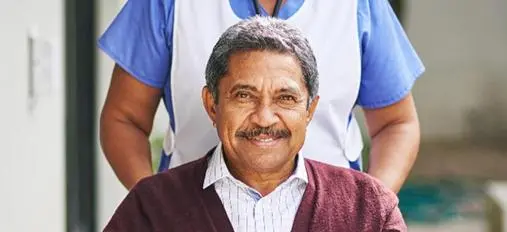
Obsessive Compulsive Disorder
OCD or Obsessive Compulsive Disorder can be a stressful and debilitating disorder that affects not only the person suffering from it but also their family and friends. People who suffer from OCD need specialised treatment that helps them cope with the symptoms and manage their disorder.Fortunately, Jagruti Dementia Centre is one of the Best OCD Treatment Centre in India, providing comprehensive services for those with OCD and related disorders. When it comes to treating Obsessive Compulsive Disorder (OCD), patients need the best care available.
Contact Us.
Enquiry Now



